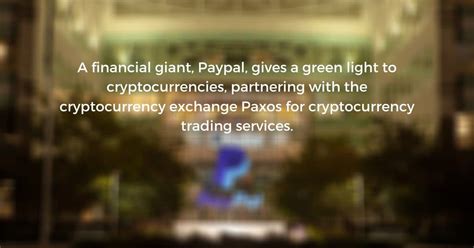CRYPTOCURRENCY
The Future Of Decentralised Exchanges: Innovations And Trends
The future of decentralized exchanges: innovations and trends
While the world is becoming more and more digital, the use of cryptocurrencies is increasing. With the emergence of decentralized exchanges (DEX) and other blockchain-based platforms, the traditional exchange model is disturbed by new technologies and innovations. In this article, we will immerse ourselves in the future of decentralized exchanges, exploring the latest trends and developments that shape the industry.
What are decentralized exchanges?
A decentralized exchange, also known as Dex, is an online platform which allows users to exchange cryptocurrencies without relying on central counterparts (CCP). Instead of exchanging a cryptocurrency for another through traditional intermediaries such as brokers or exchanges, Dex use blockchain technology and smart contracts to facilitate transactions directly between buyers and sellers.
Why do decentralized exchanges gain popularity?
- Decentralization : By avoiding the need for intermediaries, decentralized exchanges offer greater transparency and security.
- Flexibility : Dex can exchange a wide range of cryptocurrencies with minimum or not restrictions on negotiation hours, costs or lever effect.
- Low costs : The use of smart contracts and blockchain technology, decentralized exchanges often eliminate the need for traditional payments treatment companies.
Innovations in decentralized exchanges
- Intelligent contracts : Intelligent contracts allow automated execution of professions based on predefined rules and conditions.
- Liquid Stakes : Liquid issues allow traders to participate in transactions without the need for liquidity pools or third -party intermediaries.
- Liquidity provisioning (LP)
: LP allows decentralized exchanges to provide liquidity to users, reducing the risk associated with market volatility.
Trends of decentralized exchanges
- Increased adoption : While more and more investors and traders adopt DEX, demand for these platforms increases, stimulates growth and innovation.
- Improvement of the user experience : The use of artificial intelligence (AI) and automatic learning algorithms (ML) to personalize user experiences becomes more widespread.
- Regulatory environment : While governments around the world are starting to regulate the trade in cryptocurrencies, decentralized exchanges adapt to respond to the changing regulatory landscape.
Future developments in decentralized exchanges
- Transversal trading : The development of transverse trading protocols allows transparent trading between different blockchain networks.
- Resistance to quantum IT : To ensure decentralization and security, the developers will focus on the implementation of quantities resistant algorithms.
- Incorporation of alternative blockchain networks : Dex can consider integrating with other blockchain networks to extend their scope.
Conclusion
The future of decentralized exchanges is brilliant, motivated by the growing adoption of trading of cryptocurrencies and innovative technologies such as intelligent contracts and liquid issues. As we go ahead, it will be essential for decentralized exchanges in order to prioritize regulatory compliance, user experience and security to maintain confidence in these platforms.
While the world continues to evolve at an unprecedented rate, decentralized exchanges are about to play an essential role in facilitation of global financial transactions and the favoring of greater financial inclusion.
Key players:

* UNISWAP : A Pioneer Dex who revolutionized the cryptocurrency market.
* Sushiiswap : Another popular Dex which has won a significant traction among users.
* Composed : a decentralized loan protocol with a strong emphasis on yield agriculture.
